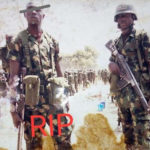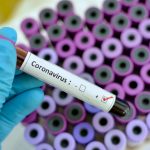Brief History
From March 22, 2020, the 20th edition of the Nigerian National Sports Festival will begin and Nigeria’s best domestic athletes will converge in the ancient city of Benin, Edo State, for the biggest domestic sports festival in the whole of Africa.
This bi-annual celebration of sports, cancelled and postponed on a few occasions for various reasons adduced by host States, was introduced into the country’s social fabric as one of the weapons designed to cushion the pain, bitterness and other fallouts of the 1967-1970 Civil war. The first National Sports Festival that took two years of planning was held in 1973 in the capital city of Nigeria then, Lagos, and hoisted by the new National Sports Commission under Dr. Isaac Akioye.
The festival held every two years in those days – 1975 in Lagos, 1977 in Kaduna, 1979 in Ibadan, and so on. Somewhere down the line, the sequence was broken.
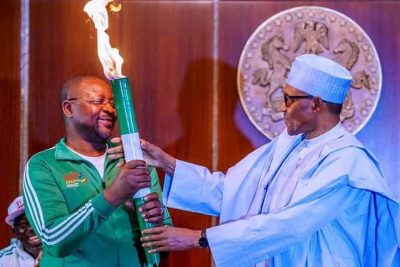
President Muhammad Buhari lights up the Unity Torch for the 20th National Sports Festival -Edo 2020, hands over to Minister of Youth and Sports Development, Sunday Dare, for movement around the States of Nigeria
My Story
I was an athlete at the first two festivals in 1973 and 1975, representing Western State, comprising present day Oyo, Ogun, Ondo, Osun and Ekiti States.
Those festivals set me up firmly for a full-time career in football.
Before the Festival, I was just a player for a few clubs in Ibadan, even though as a student at The Polytechnic, Ibadan.
In 1973 I was on Industrial Attachment at Africa’s first and largest television station, WNTV/WNBS, in Agodi, Ibadan, serving as an Assistant Technical Officer and as a young officer in charge of football of the broadcast house,
I was playing for the WNTV/WNBS football team at the time, when I was invited to the camp of the senior team of Western State in preparation for the first National National Sports Festival. The Western Lions, as the team was called at the time, comprised the best players selected from amongst all the major clubs in the State. To have been selected as part of that elite team spoke volumes about how good a player I must have been without fully appreciating it myself.
Also Read: Ighalo Admits To Feeling ‘Pressure’ After Scoring First Man United
That summer, I succeeded in playing my way into the first team of the Western Lions. It was with the team that I had my first taste of international football when we played under floodlights at the Liberty Stadium in Ibadan, against the national team of Central African Republic in a friendly match. That match cemented my place in the Western State festival team that was to camp for several weeks away from the hustle and bustle of Ibadan in the quiet and secluded village of Ipetumodu near Ife. We trained on the grounds of the University of Ife in a very comprehensive preparation for the Sports Festival.
The scope and standard set in the organization of that first festival was very high. I don’t think it has been matched since then by any hosting State, not even by Lagos that hosted it a second time in 1975.
A few weeks after the end of the Sports Festival, one hundred football players were selected from amongst all the participating States based on their performances during the matches and invited to the national camp in Lagos for a screening exercise that was to trim down the squad to 33 players to form the core of a new national football team called the Green Eagles!
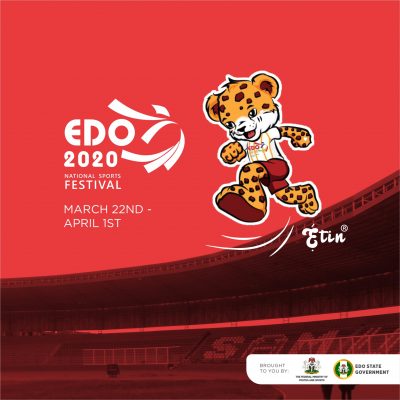
The same formula was adopted in the assembly of the intermediate and junior national teams, as well as for all the other sports after the festival.
The festival became the testing ground for the best athletes. Each of the sports federations arranged for their own scouts to identify the best athletes during the festival. Thereafter, those identified in the different sports from the various States were invited by the national associations to form a new core of elite athletes that were then prepared for the national teams.
In 1973 and 1975, what happened at senior level was replicated at junior and intermediate levels. Each State presented three categories of athletes in as many sports as they had athletes, or could afford.
In 1973, played my first and only match on the opening night of the Games before a capacity crowd of probably 100,000 spectators, against a star-studded Lagos State team parading some of the national teams’ greatest stars at the time including Haruna Ilerika, Yakubu Mambo, Sani Mohammed, Joseph Erico and so on. Although the Western Lions lost, a few of us were invited to join the national team squad a few weeks after the games.
That’s was how, from nowhere, I was discovered. Although we lost the only match we played, I scored our lone goal, and became one of three players invited from the Western Lions.
That marked my national recognize and created the opportunity for me to eventually become a fixture in the Green Eagles beyond the games.
Such a transition was one of the main objectives of the National Sports Festival – discovering young new talents.
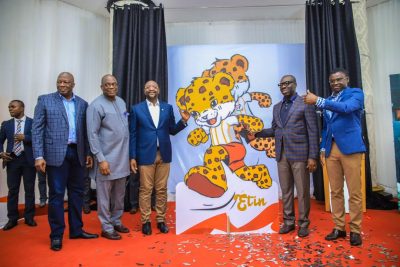
Minister of Youth and Sports Development Sunday Dare and Edo State governor Godwin Obaseki launch Edo 2020 National Sports Festival mascot, named Etin
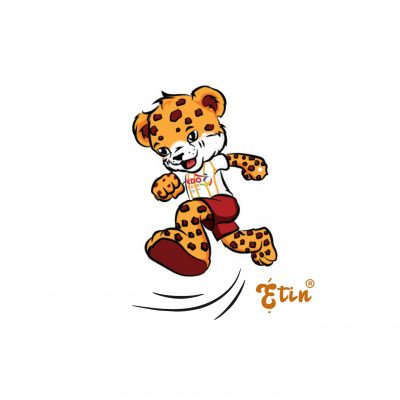
Etin – the Edo 2020 National Sports Festival mascot
The challenging years
Since 1973, the festival has undergone several changes. Today, only very few of the original features of the games remain.
There were bickering and regular confusion about the athletes that could participate.
Junior and intermediate levels were removed from the games and separate programs were created to sustain their development as the cost of hosting became too high for States to afford.
Controversy arose over the eligibility of Nigerian athletes based abroad returning for the purpose of the games and representing the State that can foot their bills.
The cost of organizing the massive games became too high for several interested States, creating delays, postponements and even outright cancellation of what should have continued as bi-annual games.
The festival, however, moved around a few States in the country, helping to upgrade some of the local infrastructure and facilities, and generating commercial activities and social engagements for the period of two weeks for the 10000 persons, athletes and officials, that converged on a town and took over its social life for the period,
The festival was everything a festival should be, achieving most of the goals it set out to achieve including uniting the youths from around the country, helping States to develop their sports facilities, unifying the people, generating healthy competition to discover athletes good enough to represent the national teams and so on.
In the 47 years since that first festival in Lagos, the National Sports Festival has undergone changes that have diminished its importance and glamour in Nigerian sports. Although a few States tried to raise standards when they hosted (Ogun State is a good example in 2006) by involving the private sector in the funding of the games, the damage done earlier had been too deep to return the festival to its past glory. cheating and several other malpractices had infected the games’ credibility and little developmental purposes were achieved.
Edo 2020 – rekindling the festival!
That’s why Edo 2020 is important. Returning the festival to Edo State, described as the home of sports development in the country because of its rich history in presenting several of Nigeria’s best athletes in several sports through the decades, is been received with a lot of positive expectations. The effort of the State to raise the standards in all ramifications is rekindling hope and generating national excitement.
That’s why from March 22 all roads will lead to Benin City and all eyes will be riveted on emerging new talents that will fulfil the original objectives of the games, still relevant today as they were 47 years ago!
4 Secrets To Becoming Rich – How To Get Rich From Nothing: This ebook is a must read for anyone serious about exiting the rate race…. Copyright © 2020 Completesports.com All rights reserved. The information contained in Completesports.com may not be published, broadcast, rewritten, or redistributed without the prior written authority of Completesports.com.
You may be interested

PSG To Reignite Interest In Osimhen
Webby - December 21, 2024Paris Saint-Germain have contacted Napoli to discuss signing Victor Osimhen in January, according to reports in France.It is reported that…

Arteta Provides Injury Updates On Five Arsenal Players Ahead Palace Clash
Webby - December 20, 2024Arsenal manager Mikel Arteta has revealed that Declan Rice and Riccardo Calafiori are both available to be in the Gunners…

Carabao Cup: Spurs Edge Man United In Seven-Goal Thriller To Reach Semi-finals
Webby - December 19, 2024Tottenham Hotspur edged Manchester United 4-3 in the quarter-finals of the Carabao Cup on Thursday.Spurs raced to a 3-0 lead…
















![American Pastor, David Wilson Seen Eating The Box Of Woman Who Isn’t His Wife [Video]](https://onlinenigeria.com/wp-content/uploads/2019/10/american-pastor-david-wilson-seen-eating-the-box-of-woman-who-isnt-his-wife-video-150x150.jpg)




